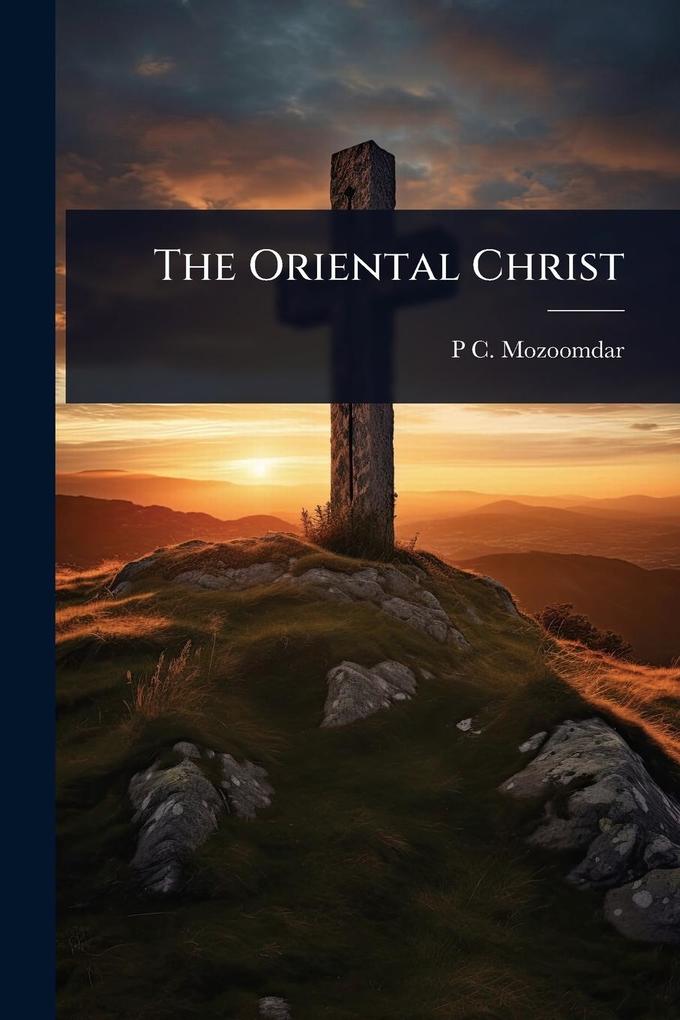
Zustellung: Do, 17.07. - Di, 22.07.
Versand in 2 Wochen
VersandkostenfreiBestellen & in Filiale abholen:
"The Oriental Christ" by P. C. Mozoomdar, originally published in 1883, explores the interpretation of Jesus Christ through the lens of Eastern cultures and philosophies. Mozoomdar, a prominent figure in the Brahmo Samaj movement, presents a unique perspective on Christianity, emphasizing the universality of Christ's teachings and their resonance with oriental spiritual traditions. This book offers a fascinating look at how religious ideas can be reinterpreted and adapted across different cultural contexts, highlighting both the similarities and differences between Eastern and Western spiritual thought.
"The Oriental Christ" remains relevant for those interested in the history of comparative religion, the intersection of Christianity and Eastern philosophies, and the impact of cultural exchange on religious understanding. It is a valuable resource for scholars and anyone seeking a deeper appreciation of the diverse ways in which Jesus Christ has been perceived throughout the world.
This work has been selected by scholars as being culturally important, and is part of the knowledge base of civilization as we know it. This work was reproduced from the original artifact, and remains as true to the original work as possible. Therefore, you will see the original copyright references, library stamps (as most of these works have been housed in our most important libraries around the world), and other notations in the work.
This work is in the public domain in the United States of America, and possibly other nations. Within the United States, you may freely copy and distribute this work, as no entity (individual or corporate) has a copyright on the body of the work.
As a reproduction of a historical artifact, this work may contain missing or blurred pages, poor pictures, errant marks, etc. Scholars believe, and we concur, that this work is important enough to be preserved, reproduced, and made generally available to the public. We appreciate your support of the preservation process, and thank you for being an important part of keeping this knowledge alive and relevant.
"The Oriental Christ" remains relevant for those interested in the history of comparative religion, the intersection of Christianity and Eastern philosophies, and the impact of cultural exchange on religious understanding. It is a valuable resource for scholars and anyone seeking a deeper appreciation of the diverse ways in which Jesus Christ has been perceived throughout the world.
This work has been selected by scholars as being culturally important, and is part of the knowledge base of civilization as we know it. This work was reproduced from the original artifact, and remains as true to the original work as possible. Therefore, you will see the original copyright references, library stamps (as most of these works have been housed in our most important libraries around the world), and other notations in the work.
This work is in the public domain in the United States of America, and possibly other nations. Within the United States, you may freely copy and distribute this work, as no entity (individual or corporate) has a copyright on the body of the work.
As a reproduction of a historical artifact, this work may contain missing or blurred pages, poor pictures, errant marks, etc. Scholars believe, and we concur, that this work is important enough to be preserved, reproduced, and made generally available to the public. We appreciate your support of the preservation process, and thank you for being an important part of keeping this knowledge alive and relevant.
Produktdetails
Erscheinungsdatum
22. Mai 2025
Sprache
englisch
Seitenanzahl
204
Autor/Autorin
P C Mozoomdar
Verlag/Hersteller
Produktart
kartoniert
Gewicht
290 g
Größe (L/B/H)
234/156/11 mm
ISBN
9781024039719
Bewertungen
0 Bewertungen
Es wurden noch keine Bewertungen abgegeben. Schreiben Sie die erste Bewertung zu "The Oriental Christ" und helfen Sie damit anderen bei der Kaufentscheidung.









